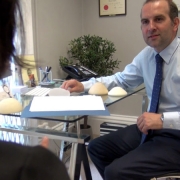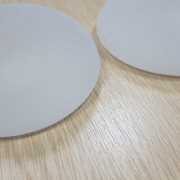Videographer
We have just appointed a full time videographer to work with us and to document the daily comings and goings at the clinic.
I know that to a lot of people, this might not be high up on the list of employees needed for a plastic surgery clinic, but it is something that I put a lot of importance on.
I remember a few years ago I saw a critical comment about the BAAPS (British Association of Aesthetic Plastic Surgeons), because it had a PR team working for it.
There seems to be an association of PR with something underhand or unethical, but when you think about it, PR is just public relations, and so there is actually nothing wrong with companies or businesses wanting to try and improve their relationships with the public.
For a long time I have tried to get across what the day to day reality is of plastic surgeons’ work because the media love to portray the extremes which usually involve freakishly-looking individuals with surgery that has gone terribly wrong.
As a result it is often considered to be unnecessary and unworthy surgery.
The reality of plastic surgery is that it can dramatically improve people’s quality of life and sense of well-being and self-esteem, and can be one of the most rewarding types of surgery to perform.
I think that video is a great medium to communicate with and the world we live in allows us to reach a huge amount of people with minimal resources, and in having a videographer at the clinic who can talk to the doctors, nurses, and the patients about their hopes, dreams, aspirations, and experiences, I hope that I can share what can and cannot be achieved by plastic surgery and that it should not be looked down upon nor should people be made to feel guilty for considering it.
Plastic surgery is not the panacea that can transform your figure and your life and bring you untold happiness, nor is it the evil and destructive pursuit of the cartoon caricature.
The majority of patients are normal, average members of the public who want to achieve a body that is more in proportion and in keeping with their frame.
I think that video has the ability to connect with people on a very personal level and whilst I know that many patients will want to maintain their privacy, I hope that some will not mind sharing their experiences to help others and to debunk the myths and false impression that many patients have of what it is about.
If you have any questions and want to get in touch, then contact us on the website or on Facebook where JJ does a live Q and A on Facebook every Tuesday at 7 p.m. Please visit our Facebook page if you would like to put a question directly to Jonathan.
Feel free to leave a comment below, or drop us an e-mail.
If you want to come for a free no obligation consultation with one of our plastic surgeons, please call or email us or fill in the on-line contact form.











#askjj
Read Jonathan's book now!
Jonathan is on a one man crusade to revolutionise the image of cosmetic surgery and is passionate about spreading his message about cosmetic surgery training.